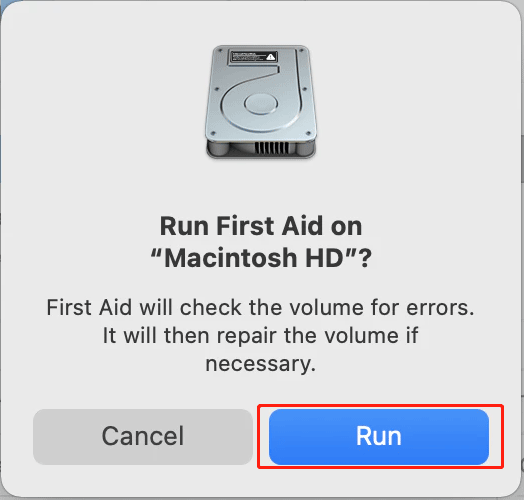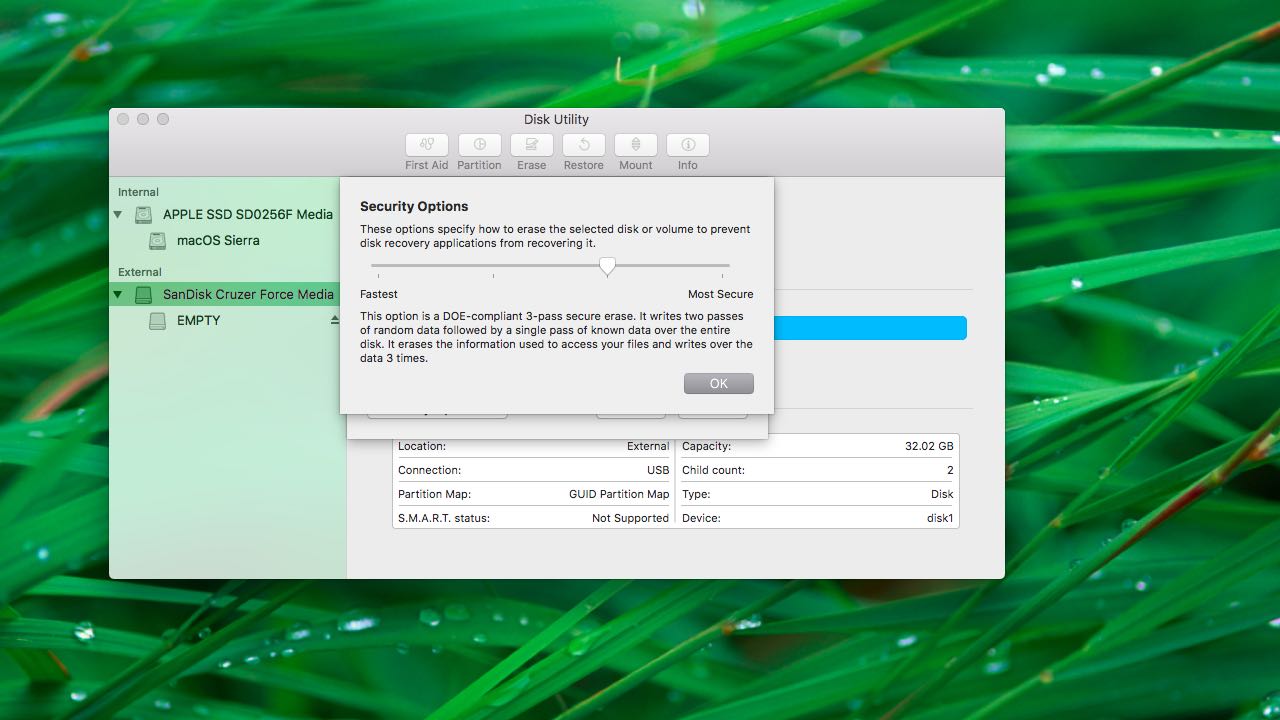
- #First aid recovery for mac book pro is disk utility 2017 how to
- #First aid recovery for mac book pro is disk utility 2017 software
- #First aid recovery for mac book pro is disk utility 2017 free
If you are using an older Mac, it probably comes with a grey recovery DVD that you can use to run recovery routines.
#First aid recovery for mac book pro is disk utility 2017 how to
Part 3: How to Boot Mac with Installation Disk After you boot Mac into Recovery Mode, you can also restore your data on Mac. There is no need to panic when you find yourself in trouble - just choose and master the method that seems least intimidating to you and you will be well on your way. Your Mac will launch into Recovery Mode and you can start fixing your Mac.Īs you can see, there are plenty of methods you can use to boot Mac into Recovery Mode.Attach your bootable OS X Recovery Disk to your Mac and select it from the prompt list.Hold down "Option" on your keyboard once you hear the chime sound.Once you have this established, you can follow these steps to get your Mac into Recovery Mode:

There are plenty of articles outlining how you can create a bootable OS X Recovery Disk, including ours. It would be great if you could invest in a high-capacity USB 3.0 flash drive to store the required tools. You can create a bootable drive to store an OS X Recovery Disk so that you can access recovery tools anytime, anywhere. Part 2: How to Create a bootable drive into Recovery Mode
#First aid recovery for mac book pro is disk utility 2017 software
The only way I can think of to try to repair the drive is to go to a Windows machine and use a reputable disk recovery software package there. Stop mounting that drive in OS X immediately to keep from making it worse.
#First aid recovery for mac book pro is disk utility 2017 free
Now, every time you mount that drive in OS X it sees all that space as free and starts to write hidden files to it that OS X uses to track it, so some of those pictures may be overwritten already.

Part of the fix was to release the sectors in the folder, meaning it marked as unused the sectors occupied by the photos.

Note that someone or some thing answered "Yes' to the system's assessment that the folders were NOT folders, so DU "fixed" the problem. If that restatement is right, what format is the drive? NTFS? HFS+? Something else? If it's NTFS, how did she fix it in OS X since OS X doesn't natively write to NTFS drives? If it's HFS+ or some other OS X format, how did she write to it on Windows, given Windows doesn't natively support OS X formats? What Mac, what version OS X? What version Windows? Did she try anything to recover the drive on Windows? Does she have any backups on either machine? Did she get any messages from the attempt to repair on OS X?įrom the log it appears that someone answered some questions about the drive which gave the repair process authority to destroy the folders.

The folders are now labeled as Unix Executable files, showing 0 bytes (how do you know they are THE folders?) Now the drive shows only 300GB used (or is that left, it's not clear what you are talking about).ĥ. She moved the drive to Mac, it mounted, and she used Disk Utility/First Aid to try to fix the problem.Ĥ. It was corrupted and she could not open or see the folders in windows, but the drive mounted and she was able to see that 15GB was still used.ģ. Your friend has a 1Tb drive connected by USB to a windows machine and put 15GB of pictures on it in a folder or folders.Ģ. Your post is a bit confusing to me, but let me see if I understand it.ġ.


 0 kommentar(er)
0 kommentar(er)
